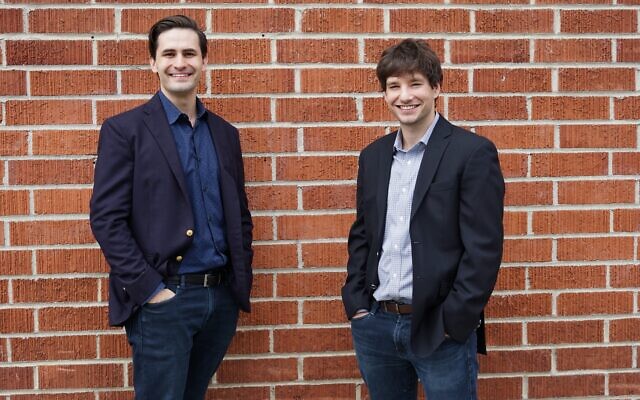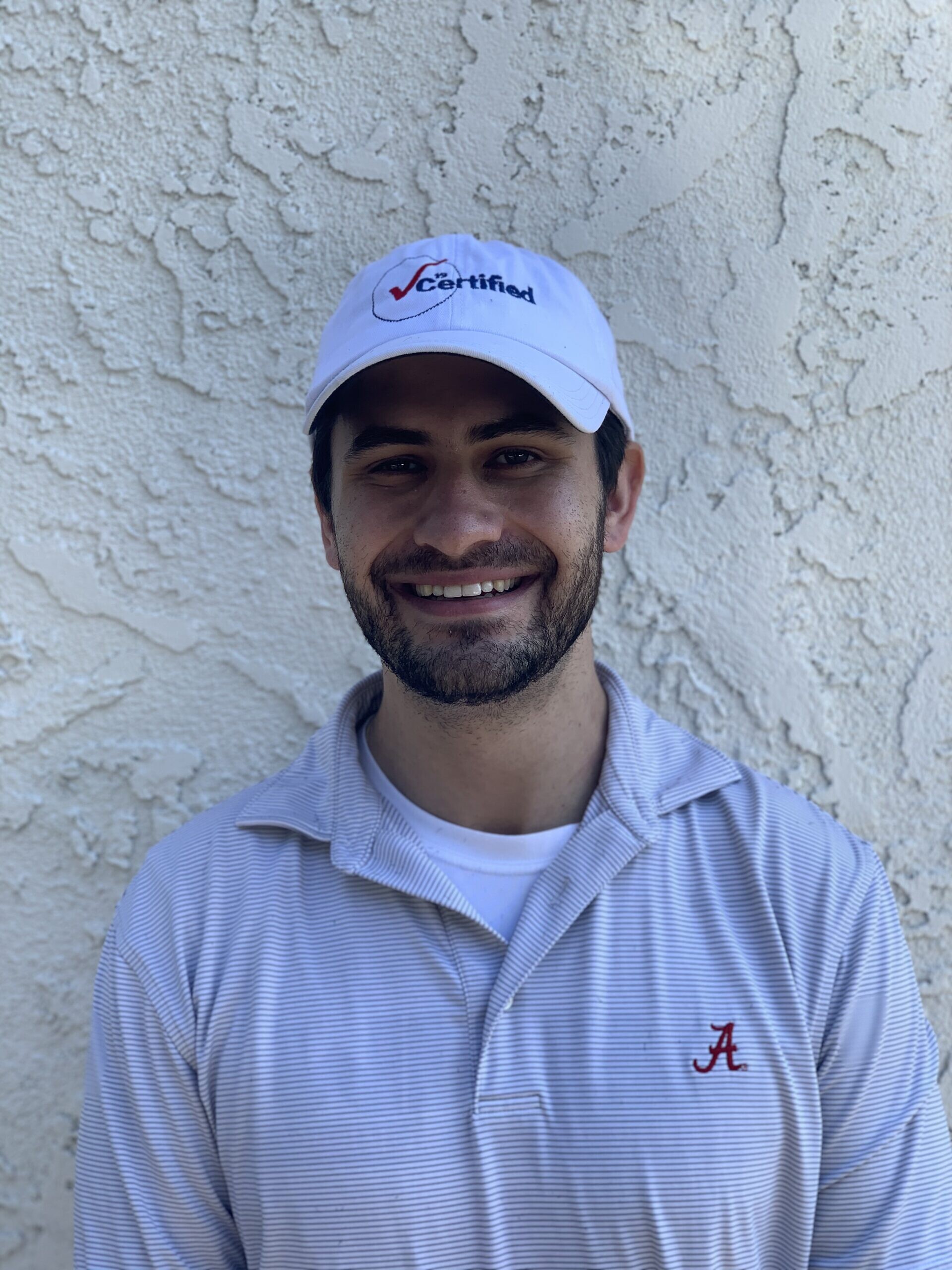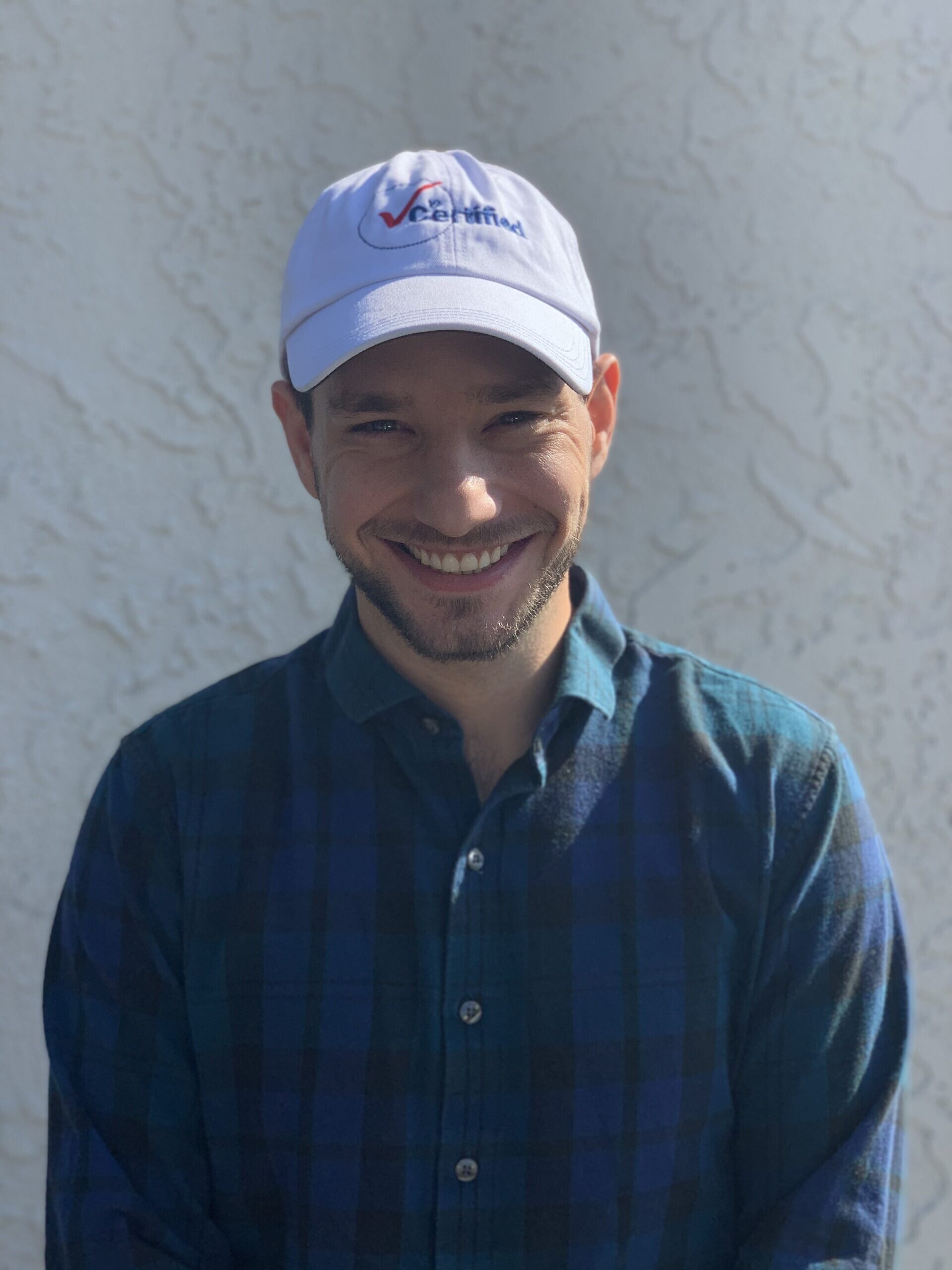Millennials Set Standards to Help ‘Prevent the Spread’
Epstein pals use education as the first line of defense.
After 37 years with the Atlanta Journal-Constitution and now with the AJT, , Jaffe’s focus is lifestyle, art, dining, fashion, and community events with emphasis on Jewish movers and shakers.

While many are tragically out of work, some are generating opportunities in this erratic market. Someone is manufacturing huge stand-up yard letters, foldable pizza boxes, major deployments of hand sanitizer stands, stylish masks, wipes, swipes and sprays.
Andrew Halpern and Adam Harris Engelhard found themselves out of work because of the COVID-19 crisis. “Playing the cards we were dealt means that no one wanted this [pandemic}; our job was to react the best way we could,” Engelhard said. Thus formed his partnership with Halpern: C19 Certified.
Both Atlantans are 29. They attended The Epstein School together and then Engelhard went from The Weber School to the University of Alabama. Halpern to Riverwood International Charter School en route to the University of Georgia.
Pre-COVID, they were both in Los Angeles: Engelhard in film production and Halpern, accounting. “We began brainstorming, and our ultimate goal was to help people get safely and quickly back to work,” Halpern said.

On March 15, they created the education program “Back to Work Force.” “We would love to have an effective vaccine, but who knows how quickly? We cannot sit back in fear,” Halpern said. “We want to help people live their lives. Businesses shut down. We took our shot to help with a solution.”
Engelhard originally thought their business model would help film companies reopen. They soon realized that there was a bigger need outside film. The resulting certification format offers online standardization that companies follow and employees learn best practices of how to operate in the “new normal” COVID-19 environment.
Employees are taken through seven lessons with 10 to 12 questions over 45 minutes to learn about recognizing symptoms, face coverings, disinfecting, sanitizing, etc. The basic module is a standard guide: “How to Prevent the Spread.”
Plus there are industry specific options for hospitality, traveling salespeople, gym/fitness, and corporate offices. The basic course is $500 plus $9.99 for each employee receiving certification. “We want it to be affordable and not break anyone’s budget. The whole procedure is touchless, all digital. It all can be done on a cell phone or tablet,” Halpern said.
Happy customer Michael Miller, owner of Arena Tavern in Duluth, has 40 employees. “A friend told me about Andy and Adam and sent their sample video. I was sold. Our staff was well trained, and this validated the process. C19 Certified was worth it!”
For their business to succeed, Halpern and Engelhard knew they needed credentialed experts, and reached out to hometown contacts. Dr. Paul Scheinberg, retired chief medical officer of Emory Saint Joseph’s Hospital, serves as medical consultant/advisor, lending practical expertise from years of clinical, scientific and management experience.
“Certification provides objective evidence of education and training with a personal commitment by each employee to comply with current guidelines established by federal and state public health authorities to minimize risk of spreading virus. This should provide reassurance of safety to all employers, employees, as well as customers and clients. Andy and Adam have done a great job creating this program presenting ‘public domain’ information in a simple format to help Georgia get back to business.”
Attorney-consultant David Cooper added, “Premises liability is a bona fide concern of businesses and employers. They want to be able to welcome a workforce and guests/clients/customers into their premises. While employees are typically covered for an illness contracted on the job by workers’ compensation, others (such as independent contractors and guests/customers) do not enjoy those same protections. The goal here is to meet a ‘standard of care’ for the operation of the premises (or a camp, for example) and avoid claims of negligence. COVID-19 certification is designed to help businesses avoid claims by utilizing published health guidelines and on-site protocols that make good sense. We do live in a litigious society.”
Engelhard concluded, “We want to do our small part to make an impact. This is about what each individual can do. Each person can help make a bigger impact. A weak link can break a chain. Education is the key and can help mitigate [this pandemic], and we’re doing our part.”




comments